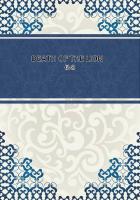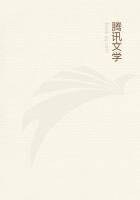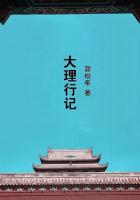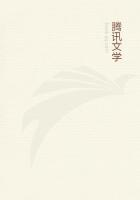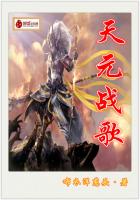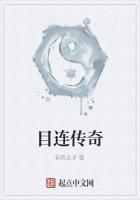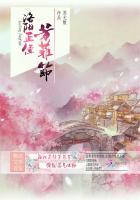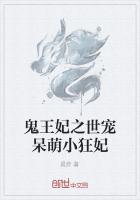Thus we may fairly conjecture that the names Carnival, Death, and Summer are comparatively late and inadequate expressions for the beings personified or embodied in the customs with which we have been dealing. The very abstractness of the names bespeaks a modern origin; for the personification of times and seasons like the Carnival and Summer, or of an abstract notion like death, is not primitive. But the ceremonies themselves bear the stamp of a dateless antiquity; therefore we can hardly help supposing that in their origin the ideas which they embodied were of a more ****** and concrete order.
The notion of a tree, perhaps of a particular kind of tree (for some savages have no word for tree in general), or even of an individual tree, is sufficiently concrete to supply a basis from which by a gradual process of generalisation the wider idea of a spirit of vegetation might be reached. But this general idea of vegetation would readily be confounded with the season in which it manifests itself; hence the substitution of Spring, Summer, or May for the tree-spirit or spirit of vegetation would be easy and natural. Again, the concrete notion of the dying tree or dying vegetation would by a similar process of generalisation glide into a notion of death in general; so that the practice of carrying out the dying or dead vegetation in spring, as a preliminary to its revival, would in time widen out into an attempt to banish Death in general from the village or district. The view that in these spring ceremonies Death meant originally the dying or dead vegetation of winter has the high support of W. Mannhardt; and he confirms it by the analogy of the name Death as applied to the spirit of the ripe corn. Commonly the spirit of the ripe corn is conceived, not as dead, but as old, and hence it goes by the name of the Old Man or the Old Woman. But in some places the last sheaf cut at harvest, which is generally believed to be the seat of the corn spirit, is called the Dead One: children are warned against entering the corn-fields because Death sits in the corn; and, in a game played by Saxon children in Transylvania at the maize harvest, Death is represented by a child completely covered with maize leaves.
5. Battle of Summer and Winter.
SOMETIMES in the popular customs of the peasantry the contrast between the dormant powers of vegetation in winter and their awakening vitality in spring takes the form of a dramatic contest between actors who play the parts respectively of Winter and Summer. Thus in the towns of Sweden on May Day two troops of young men on horseback used to meet as if for mortal combat. One of them was led by a representative of Winter clad in furs, who threw snowballs and ice in order to prolong the cold weather. The other troop was commanded by a representative of Summer covered with fresh leaves and flowers. In the sham fight which followed the party of Summer came off victorious, and the ceremony ended with a feast. Again, in the region of the middle Rhine, a representative of Summer clad in ivy combats a representative of Winter clad in straw or moss and finally gains a victory over him. The vanquished foe is thrown to the ground and stripped of his casing of straw, which is torn to pieces and scattered about, while the youthful comrades of the two champions sing a song to commemorate the defeat of Winter by Summer. Afterwards they carry about a summer garland or branch and collect gifts of eggs and bacon from house to house. Sometimes the champion who acts the part of Summer is dressed in leaves and flowers and wears a chaplet of flowers on his head. In the Palatinate this mimic conflict takes place on the fourth Sunday in Lent. All over Bavaria the same drama used to be acted on the same day, and it was still kept up in some places down to the middle of the nineteenth century or later. While Summer appeared clad all in green, decked with fluttering ribbons, and carrying a branch in blossom or a little tree hung with apples and pears, Winter was muffled up in cap and mantle of fur and bore in his hand a snow-shovel or a flail. Accompanied by their respective retinues dressed in corresponding attire, they went through all the streets of the village, halting before the houses and singing staves of old songs, for which they received presents of bread, eggs, and fruit. Finally, after a short struggle, Winter was beaten by Summer and ducked in the village well or driven out of the village with shouts and laughter into the forest.
At Goepfritz in Lower Austria, two men personating Summer and Winter used to go from house to house on Shrove Tuesday, and were everywhere welcomed by the children with great delight. The representative of Summer was clad in white and bore a sickle; his comrade, who played the part of Winter, had a fur-cap on his head, his arms and legs were swathed in straw, and he carried a flail. In every house they sang verses alternately. At Dr?mling in Brunswick, down to the present time, the contest between Summer and Winter is acted every year at Whitsuntide by a troop of boys and a troop of girls. The boys rush singing, shouting, and ringing bells from house to house to drive Winter away; after them come the girls singing softly and led by a May Bride, all in bright dresses and decked with flowers and garlands to represent the genial advent of spring. Formerly the part of Winter was played by a straw-man which the boys carried with them; now it is acted by a real man in disguise.

